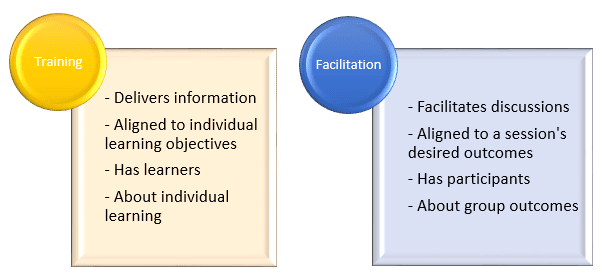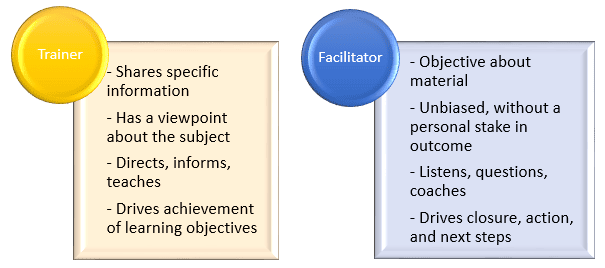
At first glance, training and facilitation can appear to be the same thing – knowledge sharing. However, there are important differences that can help you decide whether a trainer or a facilitator will best suit your business needs.
According to the Association for Talent Development (ATD), training “supports learner’s needs to ensure effective learning and improved workplace performance.” On the other hand, facilitation supports “processes and teams by developing and coaching performers, selecting and integrating the best tools, and coordinating the improvement.”
Key Components of Training vs Facilitation
This offers a compare/contrast of the components of a training session and a facilitation session.
Training is more focused on the specific learning of the individual and passing on content and knowledge. Facilitation is aimed at helping facilitate the thinking in a group. Essentially, training is about learning, and facilitation is about thinking.
The Role of Trainers vs Facilitators
So then, what is the role of a trainer versus the role of a facilitator? Here is each role’s purpose:
The role of a trainer is to advance the knowledge of individual learners, whereas facilitators are focused on “helping performers, performer’s managers, process owners, and stakeholders to discover new insights and work to make positive changes in the organization” (www.td.org).
Does Your Company Need a Trainer or a Facilitator?
Your company is looking for a trainer if it needs an instructor to pass on knowledge and expertise to less information learners who need that information to do their jobs correctly. If your company has a group of peers who want to discuss a topic of interest and collaborate in a structured environment, a facilitator can provide that structure, as well as tools, guidance, and an objective presence to encourage group thinking and balanced sharing.



